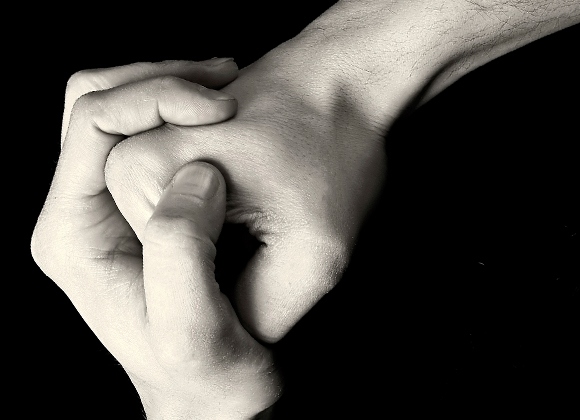
In part I, we learned about the different cycles of domestic abuse. In this article, we will explore non physical forms of abuse that are just as damaging as physical abuse.
Abuse does not always have to manifest itself into physical behavior in order for it to be harmful. Below are some indicators of Non-Physical Indicators of Abuse.
Non-Physical Indicators of Abuse:
My husband screams and yells at me.
My husband insults or shames me in front of others.
My husband does not respect my feelings.
My husband frightens me.
My husband demands obedience to their orders.
My husband does not allow me to have friends.
My husband does allow me to visit my friends and family.
My husband demands that I stay home, or follows me when I go out.
My husband demands sex, whether I want it or not.
My husband is controlling with money.
My husband controls my important documents (passport, id, etc.)
Here are some warning signs that you or someone you know may be in a domestic abuse relationship:
A batterer often uses fear and intimidation as a means to control. These tactics serve to isolate the victim and are often followed by incidents of physical abuse. Answering the following questions will help you determine whether or not you’re in an emotionally abusive relationship. A “yes” answer to even half of these questions indicates that you are headed down a path that could ultimately be emotionally and physically dangerous.
Do you feel like a child in the relationship, having to ask permission and apologizing for your behavior?
Do you feel powerless and “less than” your mate?
Have you stopped seeing your friends and family?
Does your husband criticize your friends and family members?
Did he complain so much when you saw them in the past that you finally stopped seeing them altogether so you wouldn’t have to argue with him about it?
Are you ashamed to see your friends or family because of your mate’s abusive behavior and because you are embarrassed at how he treats you?
Do you believe that you are to blame for your husband’s problems?
Do you feel you are mostly responsible for the problems with the relationship?
Does your mate try to take advantage of you sexually or make unreasonable sexual demands on you?
Does your mate’s personality change when he drinks alcohol?
Does your mate use humor to put you down or degrade you?
Does he lack the ability to laugh at himself?
Does he find it hard to apologize or to admit when he is wrong?
Does he make excuses for his behavior or always blame others for his actions?
Does he usually get his way in deciding when and where the two of you will go?
Does he control or disapprove of your spending but seem to have no problems spending on himself?
Here are some questions for a self-evaluation or danger assessment which looks at how safe you are in your present relationship:
Danger Assessment
Each situation of intimate partner violence is different and there are no true indicators that will point to the fact that the violence will occur again, or how severe. However, there are indicators that increase the likelihood that you may be in danger.
Note: Even if there are few indicators present, this does not mean that you are safe. You are your own best judge as to whether or not you feel safe.
Ask Yourself:
(On a scale of 1 to 10, 10 being the highest)
How dangerous do you think your partner is?
How safe do you feel?
Other Questions to Ask yourself:
Has the frequency of the abuse increased? (Is it happening more often?)
Has the severity of the abuse increased? (Are the injuries getting worse?)
Does your partner use drugs or alcohol?
Is your partner obsessive? (Is he/she very controlling?)
Do you feel isolated (or does your partner restrict who you can have contact with)?
Are there, or has there ever been, weapons involved?
Does your partner suffer from mental illness (suicidal or strange behaviors)?
Is there sexual abuse involved?
Is the abuser abusive to the children?
Are you pregnant, or has your partner abused you while you were pregnant?
Safety plans:
Safety at home when abuser is there:
- Stay out of rooms with no exit.
- Avoid rooms that may have weapons.
- Select a code word that alerts friends and children to call police.
- Leave suitcase and checklist items with a friend.
When the abuser moves out of the home:
- Obtain an order of protection.
- Change locks on doors and windows.
- Insert a peephole in the door.
- Change telephone number, screen calls and block caller ID.
- Install/increase outside lighting.
- Inform landlord or neighbor of situation, and ask that police be called if abuser is seen around the house.
At work:
What to do:
- Tell your employer about the abuser and to be on the look for him.
- Give security a photo of abuser and order of protection from the court(in the US).
- Screen your calls.
- Have an escort to your car or bus.
- Vary your route home.
- Consider a cell phone for your car.
- Carry a noisemaker or personal alarm.
There are other safety measures to be considered and perhaps, this would be a topic for another time, inshaAllah. Above all that this writer has written, please make dua to Allah for his protection. The best times for duas to be answers are: while traveling, fasting, while it is raining, while your face is on the ground during salah before ending it or in the middle of the night while others are sleeping, inshaAllah and Allah knows best.
Please share your views and suggestions in the comments section below. What other topis would you like us to cover? Let us know in the comments section inshaAllah. 🙂







